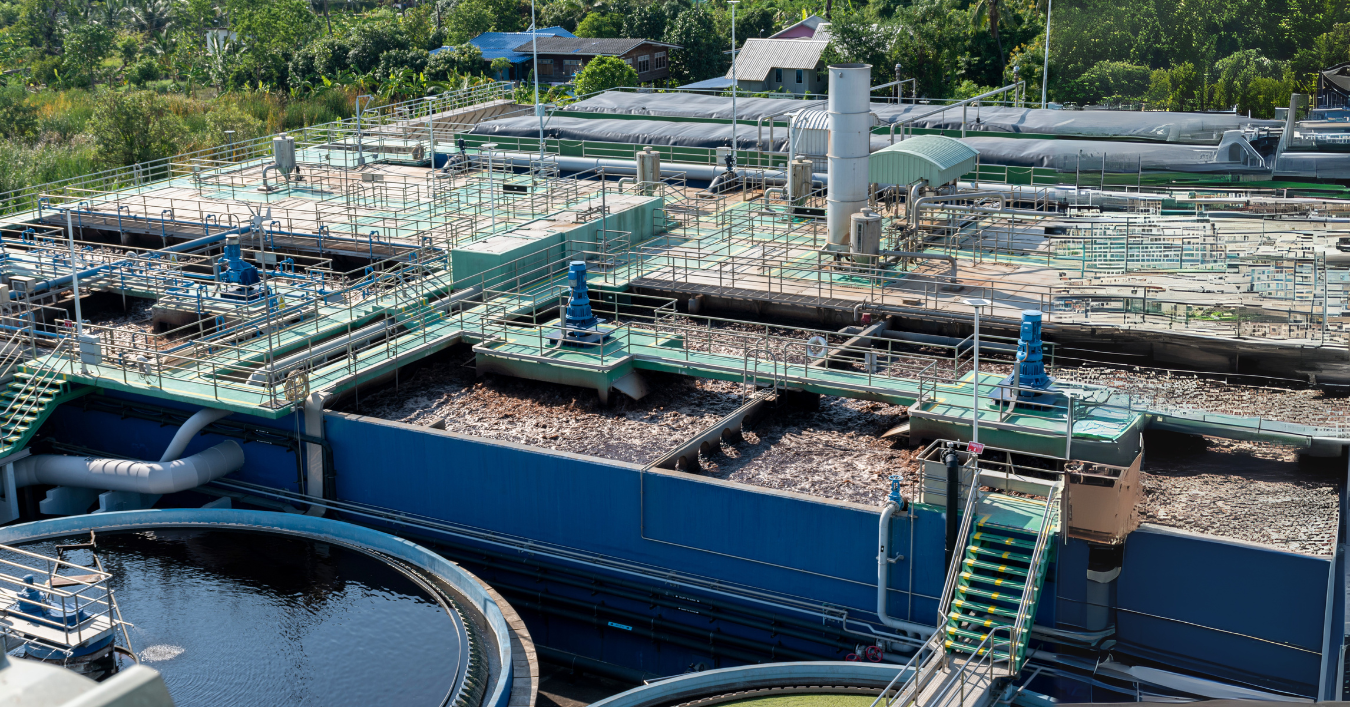
Level 6 Diploma in Water Treatment Systems Design and Optimization
- Gain specialized knowledge in the design, operation, and optimization of water treatment systems.
- Learn how to integrate sustainable practices into water treatment and distribution processes.
- Master advanced techniques for improving the efficiency and cost-effectiveness of water treatment systems.
- Prepare for leadership roles in water treatment design, consultancy, and environmental management.
- Acquire skills to address global water scarcity issues and improve water quality in both developed and developing regions.
- Become proficient in using advanced water treatment technologies, including membrane filtration, reverse osmosis, and UV disinfection.
- Understand the core principles of water treatment, including water chemistry, microbiology, and filtration methods.
- Be able to design and optimize water treatment systems for various applications, including municipal, industrial, and agricultural use.
- Gain expertise in modern technologies used for water purification, filtration, and desalination.
- Learn how to evaluate the effectiveness of water treatment processes and make data-driven decisions to optimize system performance.
- Understand the regulatory framework and environmental standards related to water treatment and quality control.
- Be equipped with the knowledge to assess water treatment system performance, identify inefficiencies, and implement solutions for system optimization.
- Introduction to Water Treatment Systems
- Overview of water treatment systems and their role in sustainable water management.
- Basic principles of water treatment, including physical, chemical, and biological processes.
- Types of water treatment systems: municipal, industrial, and wastewater treatment.
- Understanding the global challenges of water scarcity and water quality management.
- Water Quality and Contaminants
- Study of water quality parameters, including pH, turbidity, dissolved oxygen, and biological oxygen demand (BOD).
- Identification of common contaminants in water, such as pathogens, heavy metals, and organic compounds.
- Methods for measuring and monitoring water quality.
- The impact of water contamination on public health and the environment.
- Water Treatment Technologies
- Detailed study of key water treatment technologies, including coagulation and flocculation, sedimentation, filtration, adsorption, disinfection (chlorination, UV, ozone), and reverse osmosis.
- Design and application of membrane filtration systems for drinking water and wastewater.
- Overview of desalination technologies for producing fresh water from seawater.
- Emerging technologies in water treatment, such as biological filtration and advanced oxidation processes (AOPs).
- Water Treatment System Design Principles
- Principles of designing efficient water treatment systems for various applications (municipal, industrial, wastewater).
- Sizing of treatment units, including reactors, filters, and disinfection units.
- Flow diagrams and layout planning for water treatment facilities.
- Considerations for scaling treatment systems for large populations or specific industries.
- Optimization of Water Treatment Processes
- Techniques for improving the performance of existing water treatment systems.
- Process optimization methods, including reducing energy consumption, enhancing treatment efficiency, and minimizing chemical usage.
- Use of advanced monitoring tools, such as SCADA systems, for real-time performance tracking.
- Energy and cost optimization strategies in water treatment operations.
- Environmental Regulations and Compliance
- Overview of national and international water quality standards and regulations (e.g., EPA standards, WHO guidelines).
- The role of environmental agencies in regulating water treatment processes and ensuring public health.
- Compliance with wastewater discharge limits, monitoring requirements, and reporting protocols.
- Strategies for meeting sustainability goals in water treatment operations and minimizing environmental impact.
- Water Distribution and Storage Systems
- Study of water distribution systems, including pipeline design, pump stations, and storage tanks.
- Hydraulic modeling of water distribution networks.
- Challenges in maintaining water quality during storage and distribution.
- Optimizing water distribution systems to minimize losses, ensure pressure maintenance, and maintain water quality.
- Advanced Water Treatment for Special Applications
- Advanced treatment techniques for industrial and wastewater applications.
- Advanced oxidation processes (AOPs) for the removal of difficult-to-treat pollutants.
- Special considerations for treating industrial effluents and hazardous waste.
- Water reuse and recycling systems in industrial processes and agriculture.
- Water Treatment Engineer
- Water Quality Manager
- Environmental Project Manager
- Water Treatment System Designer
- Water Resources Engineer
- Water Treatment Consultant
- Sustainability Officer (Water Focus)
- Industrial Water Treatment Specialist
- Desalination Project Manager
- Water Treatment Operations Manager
- Expert-Led Learning: Learn from industry professionals with hands-on experience in water treatment design and optimization.
- Comprehensive Curriculum: Cover all aspects of water treatment, from system design and optimization to regulatory compliance and environmental impact.
- Real-World Application: Engage with practical case studies, projects, and technologies used in the water treatment industry.
- Career Opportunities: Graduates are highly sought after by organizations working to improve global water quality, and sustainable water practices, and address water scarcity issues.
- Global Recognition: The diploma is globally recognized, offering career opportunities across the world in both public and private sectors.
Study Units
- Introduction to Water Treatment Systems
- Overview of water treatment systems and their role in sustainable water management.
- Basic principles of water treatment, including physical, chemical, and biological processes.
- Types of water treatment systems: municipal, industrial, and wastewater treatment.
- Understanding the global challenges of water scarcity and water quality management.
- Water Quality and Contaminants
- Study of water quality parameters, including pH, turbidity, dissolved oxygen, and biological oxygen demand (BOD).
- Identification of common contaminants in water, such as pathogens, heavy metals, and organic compounds.
- Methods for measuring and monitoring water quality.
- The impact of water contamination on public health and the environment.
- Water Treatment Technologies
- Detailed study of key water treatment technologies, including coagulation and flocculation, sedimentation, filtration, adsorption, disinfection (chlorination, UV, ozone), and reverse osmosis.
- Design and application of membrane filtration systems for drinking water and wastewater.
- Overview of desalination technologies for producing fresh water from seawater.
- Emerging technologies in water treatment, such as biological filtration and advanced oxidation processes (AOPs).
- Water Treatment System Design Principles
- Principles of designing efficient water treatment systems for various applications (municipal, industrial, wastewater).
- Sizing of treatment units, including reactors, filters, and disinfection units.
- Flow diagrams and layout planning for water treatment facilities.
- Considerations for scaling treatment systems for large populations or specific industries.
- Optimization of Water Treatment Processes
- Techniques for improving the performance of existing water treatment systems.
- Process optimization methods, including reducing energy consumption, enhancing treatment efficiency, and minimizing chemical usage.
- Use of advanced monitoring tools, such as SCADA systems, for real-time performance tracking.
- Energy and cost optimization strategies in water treatment operations.
- Environmental Regulations and Compliance
- Overview of national and international water quality standards and regulations (e.g., EPA standards, WHO guidelines).
- The role of environmental agencies in regulating water treatment processes and ensuring public health.
- Compliance with wastewater discharge limits, monitoring requirements, and reporting protocols.
- Strategies for meeting sustainability goals in water treatment operations and minimizing environmental impact.
- Water Distribution and Storage Systems
- Study of water distribution systems, including pipeline design, pump stations, and storage tanks.
- Hydraulic modeling of water distribution networks.
- Challenges in maintaining water quality during storage and distribution.
- Optimizing water distribution systems to minimize losses, ensure pressure maintenance, and maintain water quality.
- Advanced Water Treatment for Special Applications
- Advanced treatment techniques for industrial and wastewater applications.
- Advanced oxidation processes (AOPs) for the removal of difficult-to-treat pollutants.
- Special considerations for treating industrial effluents and hazardous waste.
- Water reuse and recycling systems in industrial processes and agriculture.
Upon completion of this diploma, learners will:
- Understand the core principles of water treatment, including water chemistry, microbiology, and filtration methods.
- Be able to design and optimize water treatment systems for various applications, including municipal, industrial, and agricultural use.
- Gain expertise in modern technologies used for water purification, filtration, and desalination.
- Learn how to evaluate the effectiveness of water treatment processes and make data-driven decisions to optimize system performance.
- Understand the regulatory framework and environmental standards related to water treatment and quality control.
- Be equipped with the knowledge to assess water treatment system performance, identify inefficiencies, and implement solutions for system optimization.
This diploma is crafted for professionals, engineers, and technical specialists who are involved—or aspire to be involved—in the design, operation, and enhancement of water treatment systems. It is particularly suitable for:
Water Treatment and Environmental Engineers
Professionals responsible for planning, designing, or managing water treatment plants who want to deepen their expertise and stay current with modern treatment technologies.
Municipal and Industrial Water System Managers
Individuals working in local authorities or industries who manage water resources and aim to optimize systems for better efficiency, cost-effectiveness, and sustainability.
Environmental Scientists and Technologists
Those working in environmental roles who need technical knowledge of water quality, purification technologies, and treatment processes for both regulatory and practical applications.
Consultants and Technical Advisors
Consultants providing advice to industries, municipalities, or NGOs on water treatment systems, regulatory compliance, or optimization projects.
Construction and Infrastructure Specialists
Professionals involved in building and maintaining water infrastructure—including pipelines, storage tanks, and pumping stations—who wish to incorporate treatment systems into broader infrastructure projects.
Sustainability and ESG Professionals
Experts focused on sustainability and ESG metrics seeking to understand how efficient water treatment contributes to environmental goals and corporate responsibility.
Industrial Operations and Plant Engineers
Technical personnel involved in manufacturing or industrial operations that require in-house water or wastewater treatment systems.
Professionals Transitioning to the Water Sector
Career changers with backgrounds in engineering, environmental science, or public health who wish to enter the growing global water treatment and management industry.
Policy and Regulatory Officials
Government employees or NGO workers involved in setting or enforcing water quality regulations who need a technical grounding in how systems are designed and optimized.
Our assessment process is designed to ensure every learner achieves the required level of knowledge, skills, and understanding outlined in each course unit.
Purpose of Assessment
Assessment helps measure how well a learner has met the learning outcomes. It ensures consistency, quality, and fairness across all learners.
What Learners Need to Do
Learners must provide clear evidence that shows they have met all the learning outcomes and assessment criteria for each unit. This evidence can take different forms depending on the course and type of learning.
Types of Acceptable Evidence
Assignments, reports, or projects
Worksheets or written tasks
Portfolios of practical work
Answers to oral or written questions
Test or exam papers
Understanding the Structure
Learning outcomes explain what learners should know, understand, or be able to do.
Assessment criteria set the standard learners must meet to achieve each learning outcome.
Assessment Guidelines
All assessment must be authentic, current, and relevant to the unit.
Evidence must match each assessment criterion clearly.
Plagiarism or copied work is not accepted.
All learners must complete assessments within the given timelines.
Where applicable, assessments may be reviewed or verified by internal or external quality assurers.
Full learning outcomes and assessment criteria for each qualification are available from page 8 of the course handbook.
Top Courses
Related Courses
Let's Get in touch
Deleting Course Review
Course Access
This course is password protected. To access it please enter your password below:



